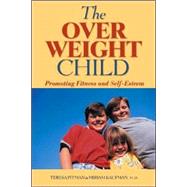
Teresa Pitman, a mother of four, has been writing about children and parenting for more than 15 years. She contributes regularly to "Today's Parent" magazine. She has also written several parenting books and is a certified Childbirth Educator and a La Leche League leader.
Miriam Kaufman is a pediatrician at The Hospital for Sick Children. A graduate of Duke University and Queen's University, she specializes in the care of adolescents. She is an associate professor at the University of Toronto, and a past chair of the Canadian Pediatric Society's Adolescent Medicine Committee. Dr. Kaufman is the author of "Easy for You to Say: Q & A's for Teens Living with Chronic Illness or Disability;" and "Mothering Teens: Understanding the Adolescent Years." She is the mother of a teen and a preteen.
| Acknowledgments | |
| Introduction | |
| The Truth about Being Overweight | |
| Why is My Child Overweight? | |
| Teasing and Self-Esteem | |
| Increasing Activity | |
| Healthy Eating | |
| Television | |
| Don't Sweat the Little Things | |
| Ten Things You Should Never Say to an Overweight Child | |
| Ten Easy Ways to Reduce Fat | |
| Ten Tips for Eating Out | |
| Holidays and Special Occasions | |
| Some Recipes to Get You Started a Further Reading | |
| Index | |
| Table of Contents provided by Publisher. All Rights Reserved. |
The New copy of this book will include any supplemental materials advertised. Please check the title of the book to determine if it should include any access cards, study guides, lab manuals, CDs, etc.
The Used, Rental and eBook copies of this book are not guaranteed to include any supplemental materials. Typically, only the book itself is included. This is true even if the title states it includes any access cards, study guides, lab manuals, CDs, etc.